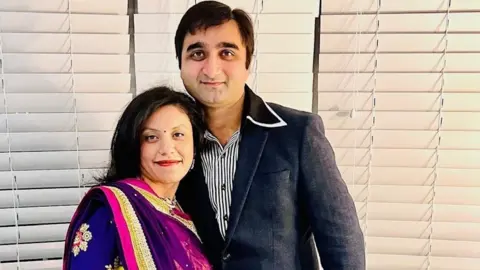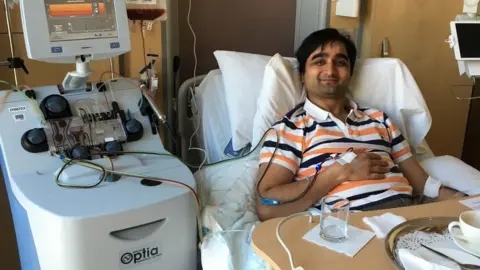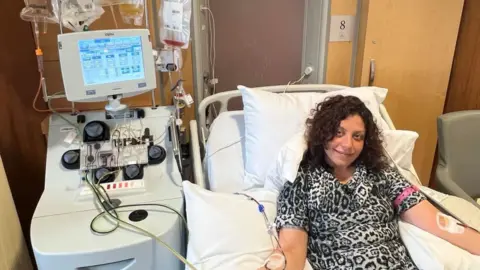Couple donate stem cells in 'rare' double match
 NHS
NHSA couple with south Asian heritage achieved a rare coincidence when both gave stem cells to cancer patients.
Nirav and Kanan Chokshi, who live in Hounslow and are originally from India, were each registered as donors and were called separately to help different people.
Successful transplants depend on donor and recipient having matching tissue types, and patients are most likely to match with those of a similar ethnic background.
A lack of registered donors for people with Asian, Black and mixed ethnicity has led the couple to urge people with similar backgrounds to sign up.
 NHS
NHSBoth Mr and Mrs Chokshi matched with patients who had acute leukaemia. Mr Chokshi had signed up to become a stem cell donor in 2016 and donated in 2018, while Mrs Chokshi signed up and donated in 2024.
Mechanical engineer Mr Chokshi, 43, said he thought there "was a lot of fear within our community" that stem cell donation would be painful or make donors feel unwell.
He added: "It’s a short moment of discomfort to save or improve somebody’s life. You could be the only chance they have, and what better feeling is there than knowing you’ve made such a huge difference to not only the recipient, but their friends and family too?"
 NHS
NHSMrs Chokshi, 44, a school lunchtime supervisor, said she had not realised what they had done was so unusual.
"They told us that us both donating was a one in four million occasion, and I feel really proud of us both," she said.
When a person needs a stem cell transplant, the global registries will be searched for a tissue match.
Most people on the stem cell register will never be called upon to donate, but the more people on the register, the higher the chance of finding a match for every patient who needs one.
Stem cells can be found in the bone marrow – a soft, spongy tissue at the centre of certain bones – and can produce all essential blood cells, including red and white cells and platelets.
Stem cell transplants are used to treat a number of diseases, including some forms of leukaemia, and are the only chance of a cure for many patients.
Listen to the best of BBC Radio London on Sounds and follow BBC London on Facebook, X and Instagram. Send your story ideas to [email protected]
